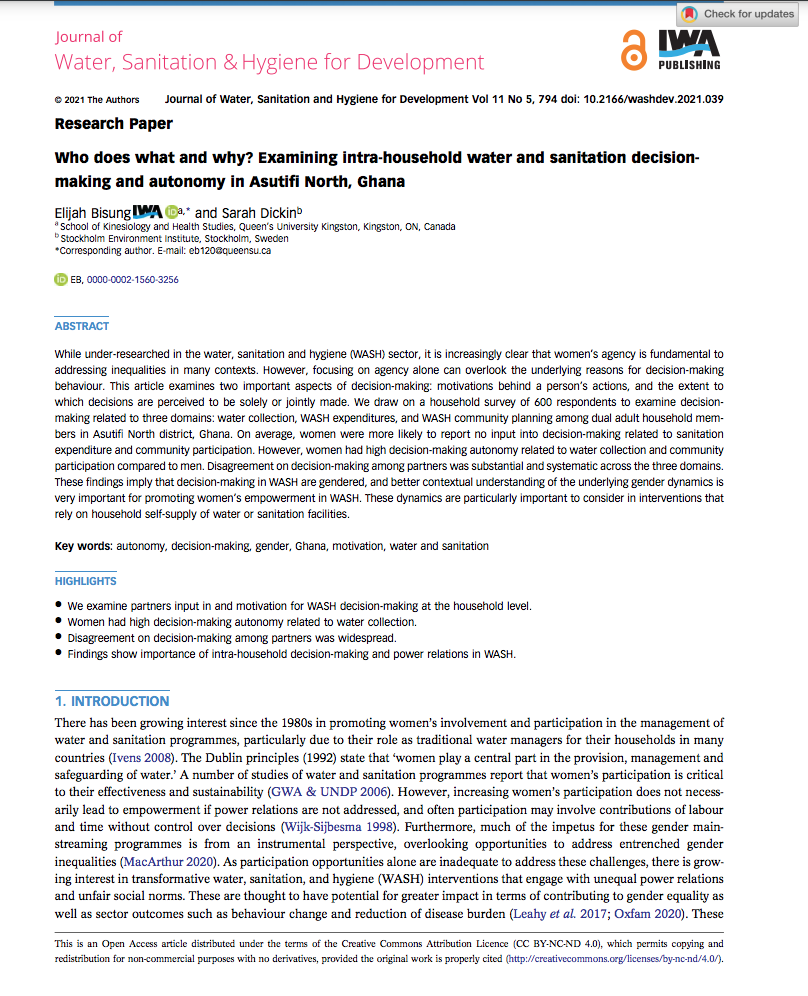Authors: Elijah Bisung and Sarah Dickin
While under-researched in the water, sanitation and hygiene (WASH) sector, it is increasingly clear that women’s agency is fundamental to addressing inequalities in many contexts. However, focusing on agency alone can overlook the underlying reasons for decision-making behaviour. This article examines two important aspects of decision-making: motivations behind a person’s actions, and the extent to which decisions are perceived to be solely or jointly made. We draw on a household survey of 600 respondents to examine decisionmaking related to three domains: water collection, WASH expenditures, and WASH community planning among dual adult household members in Asutifi North district, Ghana. On average, women were more likely to report no input into decision-making related to sanitation expenditure and community participation. However, women had high decision-making autonomy related to water collection and community participation compared to men. Disagreement on decision-making among partners was substantial and systematic across the three domains. These findings imply that decision-making in WASH are gendered, and better contextual understanding of the underlying gender dynamics is very important for promoting women’s empowerment in WASH. These dynamics are particularly important to consider in interventions that rely on household self-supply of water or sanitation facilities.

